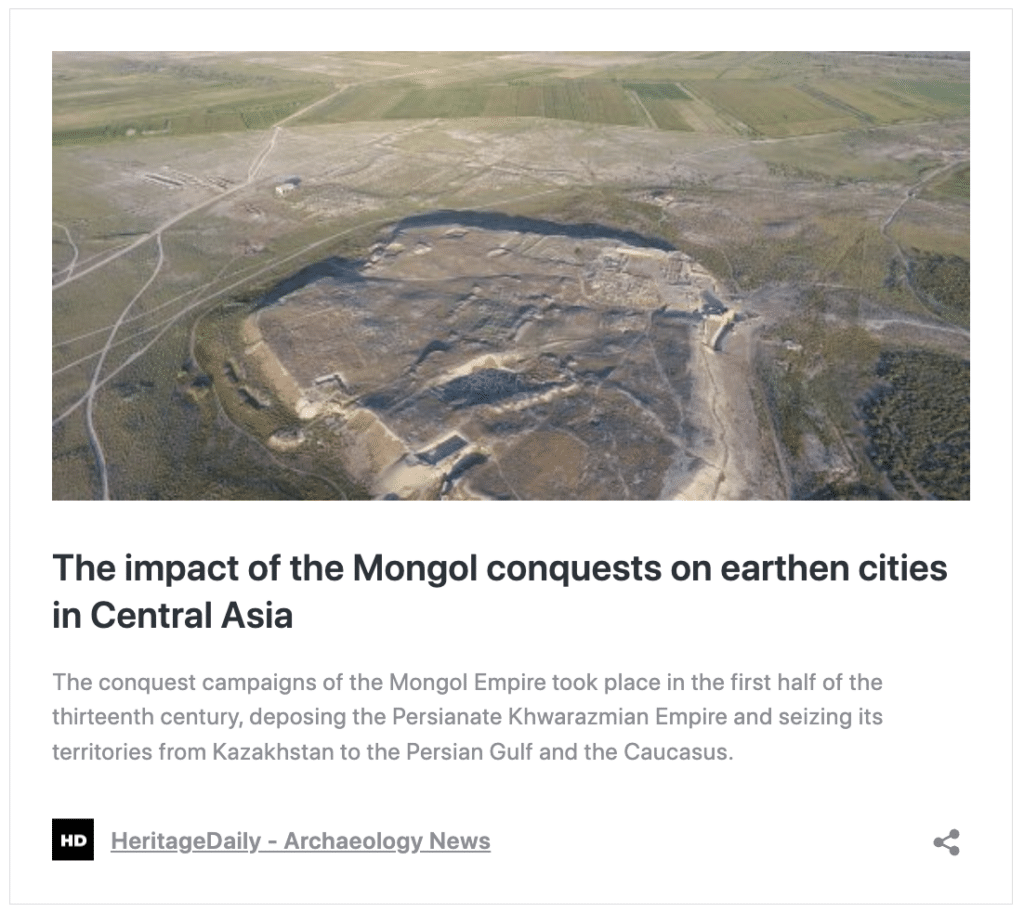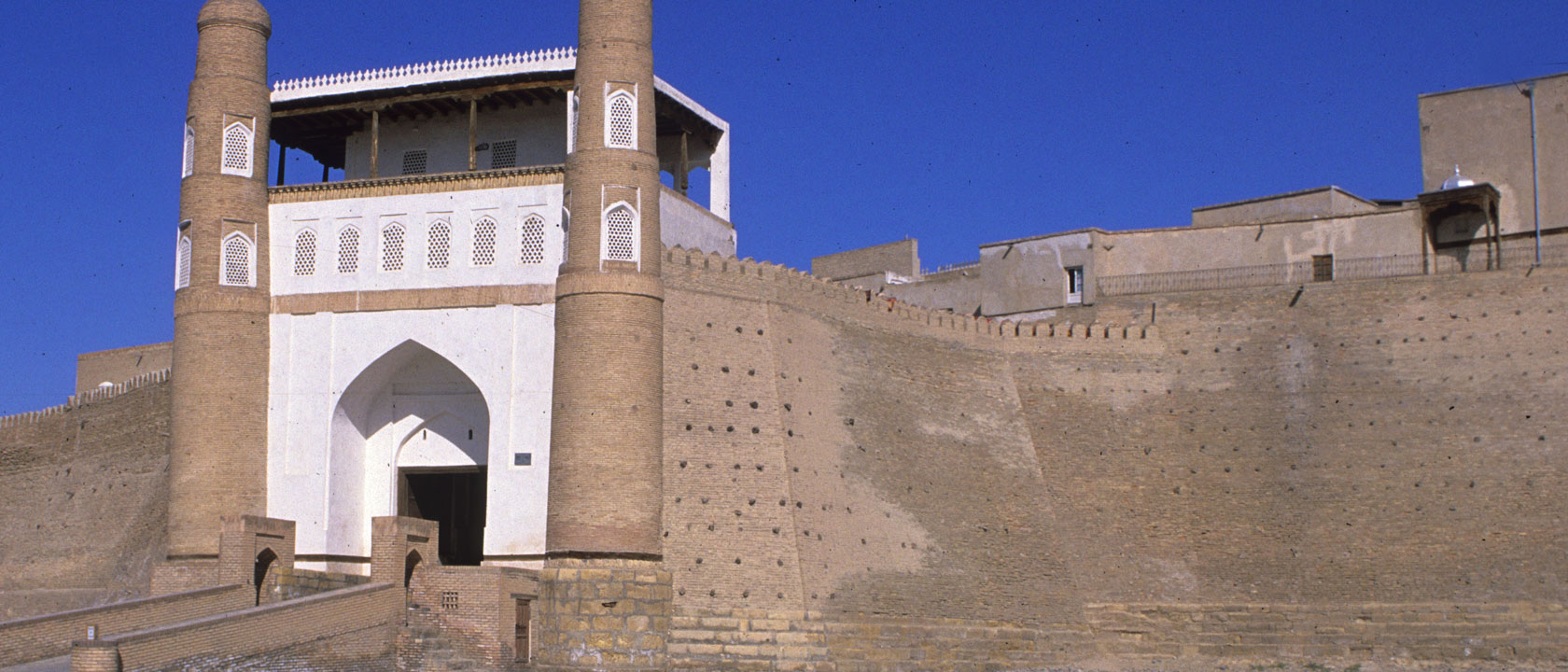Dr Katie Campbell
Katie is currently a Research Fellow at King’s College and a Fellow of the McDonald Institute for Archaeological Research. She studied history and archaeology at Exeter and worked as an archaeologist and heritage manager for commercial and research institutions across Europe, the Middle East and Central Asia before completing an MSc in digital heritage at York and a DPhil in archaeology at Oxford. Her research has focussed on the archaeology and heritage of complex urban sites, with her doctoral thesis examining evidence for the Mongol Conquest of the 13th century and subsequent urban change at cities in Central Asia and the Caucasus.
She has also worked on sites dating from the pre-pottery Neolithic in Turkey to the 20th century in Qatar, and many of the periods and countries in between, for institutions including the British Museum and the universities of Oxford, Cambridge, University College London, Copenhagen, Liverpool and York. In particular, she is interested in what happens to urban centres when they are conquered and how this can be observed archaeologically, which means spending a lot of time carefully excavating in the cities and trying to work out the difference between the remains of conquest versus those of abandonment and desertion.
She is currently a research fellow at King’s College investigating broader changes in these urban sites from the 11th to 15th centuries, a period when Turco-Mongol groups moved into the area. She has worked extensively in Azerbaijan, Georgia and Turkmenistan and currently leads a field project with colleagues from the Otrar State Archaeological Museum and Archeoservice at the urban site of Otrar in southern Kazakhstan.
While not in the trenches, she likes to explore and has travelled extensively around Central Asia, the Caucasus and the Middle East teaching and lecturing on archaeological field schools and tours; and trying to understand (to some extent!) the many languages of the region. Katie first joined ASA in 2019 as tour lecturer for ASA’s tour ‘The Silk Route: China & Kyrgyzstan’, and has been our tour lecturer for “Uzbekistan: The Silk Road Cities” since 2023.
A new study by Dr Katie Campbell:
The most updated publication list is available from https://cambridge.academia.edu/KatieCampbell
- Priestman, S, Kennet, D, MacDonald, E al-Jahwari, N, Campbell, K et al (2024) Sohar Project: The archaeology of an Indian Ocean port in Arabia IASA Bulletin 32, pp.17-19
- Campbell, K (2023) The Impact of the Mongol Conquests on Earthen Cities in Central Asia. International Journal of Islamic Architecture, 12:2, pp. 393-414 https://doi.org/10.1386/ijia_00118_1 https://doi.org/10.17863/CAM.93282
- Campbell, K, Naskidashvili, D, Turchin, K & Licheli, V (2023) Household Archaeology and the Agricultural Economy of an Iron Age Village: The 10th-3rd centuries BC at Grakliani Gora, Shida Kartli, Georgia in On the Shoulders of Prometheus. International collaboration and the archaeology of Georgia (eds. Intagliata, E & Everill, P) Archaeopress: Oxford, pp. 15-41 https://doi.org/10.17863/CAM.100727
- Campbell, K [凯蒂· 坎贝尔] (2023) 哈萨克斯坦的讹答剌城: 从考古学看蒙古中亚大征服的影响. 欧 亚 译 丛 [translation by Peng Yongshan of ‘The City of Otrar: Using Archaeology to Better Understand the Impact of the Mongol Conquest of Central Asia’] Journal of Translated Eurasian Articles, 7 (5.2023) pp. 330-344
- Campbell, K, Seraliyev, A, Naskidashvili, D, Akylbek, S (2022) Urbanism Under Turco-Mongol Rule: Excavations in Otrar, Kazakhstan. TSU-TI: The International Scientific Journal of Humanities, 1, pp. 9-23 DOI: https://doi.org/10.55804/TSU-ti-1/Campbell
- Kabora, T & Campbell, K (2022) Archival Photography, UAV Surveys and Structure-from-Motion Techniques for Local Heritage Management in Visual Heritage: Digital Approaches in Heritage Science (eds. Ch`ng, E, Gaffney, V & Chapman, H) Springer Nature: Switzerland, pp.351-374 https://doi.org/10.1007/978-3-030-77028-0_17 https://doi.org/10.17863/CAM.84489
- Campbell, K (2022) Presenting Al Zubarah Archaeological Site in Al Zubarah: Qatar’s World Heritage City (eds. Muhesen, S, Walmsley, A, Hassan al-Sulaiti, F, Rosendahl, S & Thuesen, I), pp. 195-206. Qatar University Press: Doha
- https://doi.org/10.17863/CAM.91791
- Campbell, K (2022) Al Zubarah in Contemporary Society in Al Zubarah: Qatar’s World Heritage City (eds. Muhesen, S, Walmsley, A, Hassan al-Sulaiti, F, Rosendahl, S & Thuesen, I), pp. 207-214. Qatar University Press: Doha
- Campbell, K (2020) The City of Otrar, Kazakhstan: Using Archaeology to Better Understand the Impact of the Mongol Conquest of Central Asia. Proceedings of the 11th International Congress on the Ancient Near East (ICAANE) Ludwig Maximilians Universität, Munich 2018, pp. 597-606 https://doi.org/10.17863/CAM.87960
- Williams T, Campbell, K, Jorayev, G, Wordsworth, P, Jepbarov, R & Morisset, S (2018) Semi-fortified Palatial Complexes in Central Asia: New Work at the Great Kyz Kala, Merv, Turkmenistan. Archaeology International, 21(1), pp. 153-169 DOI: https://doi.org/10.5334/ai-395
Katie first joined ASA in 2019, and has since led the following tours:
- Uzbekistan: The Silk Road Cities (2023 & 2024)
- The Silk Route: China & Kyrgyzstan (2019)



 Uzbekistan: The Silk Road Cities 2026
Uzbekistan: The Silk Road Cities 2026